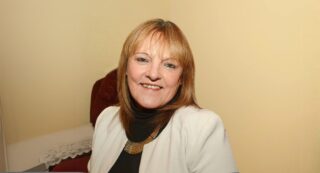Minister for Rural and Community Development, Heather Humphreys TD, launches Western Development Commission Report.
The report identifies both opportunities and challenges for rural dwellers in the areas of transport, energy efficiency and heating and electricity demand and supply.
The work is the first of its kind to examine the likely impact of the transition to a low carbon economy on rural dwellers in Ireland.
Recommendations include:
- Increase remote working and the use of hubs to reduce commuting.
- Align charging infrastructure for electric vehicles with rural enterprise hubs and broadband connection points.
- Encourage more rural communities to become involved developing and participating in renewable energy projects which offer huge opportunities for communities as project shareholders.
- Appropriate wood fuels can play a role in the transition and generate economic activity and circular economy benefits in rural areas
- Retrofit a ‘demonstration home’ in each county to showcase the benefits of switch away from fossil fuels.
The Western Development Commission (WDC) has today (Wednesday 5th August ) published new analysis of the challenges for rural areas in a report titled ‘Making the Transition to a Low Carbon Society in the Western Region— Key issues for rural dwellers.
The report was launched by Minister for Rural and Community Development, Heather Humphreys, at the WDC offices in Ballaghaderreen, Co Roscommon.
Authored by Dr Helen McHenry of the WDC, the report is the first of its kind to specifically examine the likely impact of the transition to a low carbon economy on rural dwellers in Ireland. This excludes consideration of agricultural emissions and is focussed on those who live in rural areas.
The report looked at three key areas: Transport and travel, Homes in the Western Region and Electricity Demand/Supply. The research showed nearly half of people based in the region (49.7%) have access to less than 10 daily departures from their nearest bus stop. It also showed that 42.7% of households have at least 2 cars. Making recommendations, the WDC has said that the increase in remote working should continue post Covid-19 and the region should be using the rural enterprise hubs to reduce commuting times and to encourage the time spent in towns and villages. The report also suggests that there is a need to promote electrical vehicles and align charging infrastructure rollout with hubs and broadband connection points.
When looking at homes in the region, the report found that 82% of homes use oil, coal or peat compared with 44% in the rest of the state. It also found that only 5% of homes have a BER rating of B2 [the energy efficiency target set out in the Climate Action Plan]. Research focused on Electricity demand and supply, concluded that the Western Region generates 120% of its electricity needs from renewable resources. It also found that connected renewable generation is set to more than double before 2030. The report recommends that there must be active engagement with rural communities at the location of future renewable energy projects and also suggests that renewable energy schemes offer huge opportunities for communities as project shareholders.
In welcoming the report, Minister for Rural and Community Development Heather Humphreys TD said:
“While this report is focussed on the Western Region, it identifies the challenges and opportunities for rural dwellers across Ireland. It also correctly recognises the role remote working and enterprise hubs can play in the transition to a low carbon economy. This, in conjunction with the rollout of the National Broadband Plan and Broadband Connection Points initiative, represents a significant opportunity for rural Ireland. Allowing people to work close to where they live will regenerate towns and villages and improve quality of life while meeting the ambitious targets of the government on climate change.”
Tomás Ó Síocháin, CEO of the Western Development Commission said, ‘there are significant opportunities to make rural towns and villages the focus of social and economic activity through the use of enterprise hubs which can facilitate increased remote working, the opportunities for communities to benefit as shareholders in renewable energy projects and more broadly to re-imagine travel and mobility across the region.’
Building on this report the Western Development Commission is committed to working with communities, with both public and private stakeholders, as part of its ‘Work Smarter, Live Better’ strategy to facilitate the transition to a sustainable, low carbon economy.




